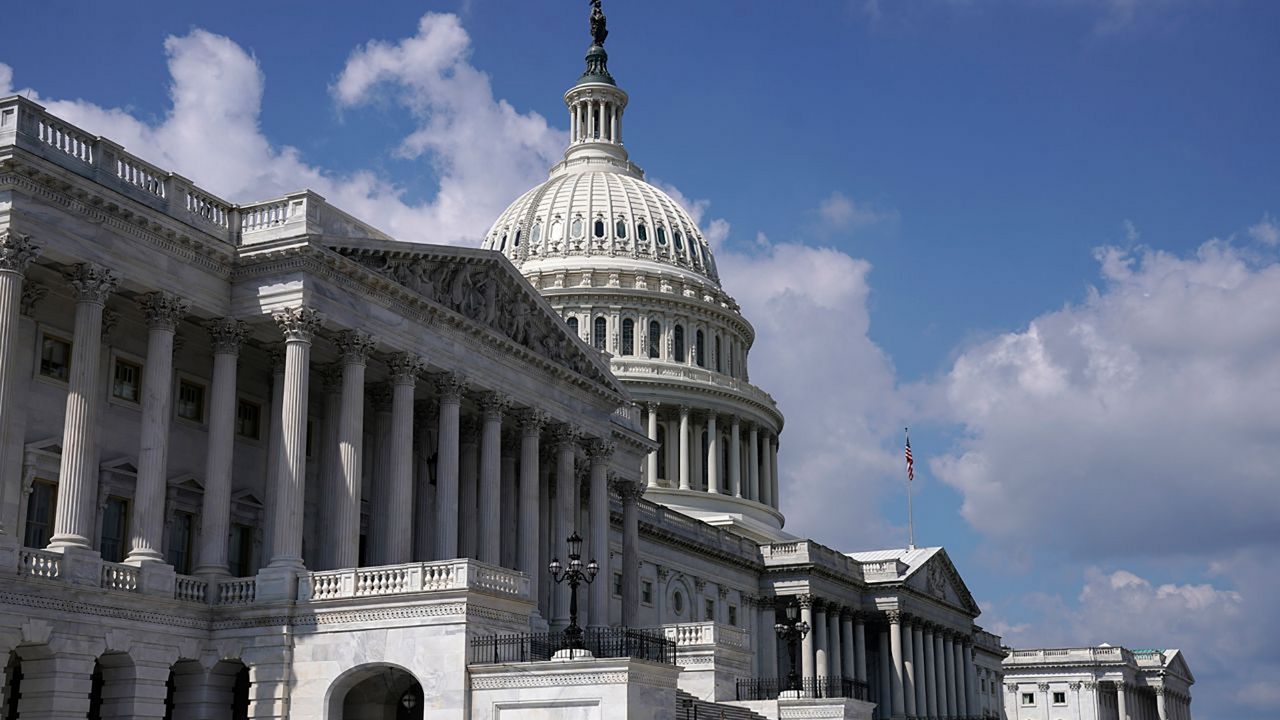WASHINGTON— Senate Democrats pressured Republicans on the debt ceiling impasse Thursday, focused in a hearing on what they say will be painful reductions in government services if a bill recently passed by the House becomes law.
No one expects that the House bill, which would importantly increase the nation's borrowing authority as well as cut spending, will reach President Joe Biden's desk. The Democratic Senate won't let it.
Many Republicans admitted so when passing the measure. But they said action by the House was necessary to get Biden to the negotiating table with Republican Speaker Kevin McCarthy. A meeting at the White House with congressional leaders of both parties is set for next week.
Despite the legislation's certain demise, Democrats are eager to tie Republicans, particularly in swing districts and states, to various provisions in the bill. Those include one that would cap next year's spending at 2022 levels and allow it to rise only 1% annually in ensuing years.
That change, which accounts for most of the projected $4.8 trillion in savings, could have severe impacts on programs such as Head Start and Meals on Wheels, cancer research and veterans' health care, Democrats say.
It's just the latest jousting in Congress over the debt limit, a legal limit to government borrowing that has been raised repeatedly in recent years as the nation's debt has swelled past $31 trillion. Urgency around the issue intensified this week as the Treasury Department announced that the “extraordinary measures” being used to avoid a devastating government default could run out on June 1 — giving lawmakers just a few weeks to find a solution.
Republicans describe the Democratic effort as a distraction that won't change their position: Biden must negotiate on spending reductions in exchange for increasing the debt ceiling.
“The president has actually got to come to the negotiating table and offer a plan. He’s the one who wants a debt ceiling increase to pay for all of his spending,” U.S. Sen. Josh Hawley R-Mo. told Spectrum News.” He’s spent 4 trillion dollars in the last 2 and a half years. It’s more than we spent on World War II. And now he’s got to raise the debt ceiling to pay for it. He needs to come forward with a plan.” Hawley, who says he’s opposed to a short-term extension,has previously introduced legislation that would exempt Social Security and Medicare spending from the debt ceiling, which he still supports, a spokesperson confirmed Thursday. That bill has not emerged from the Senate Finance Committee.
Hawley said he would eliminate funding for more than 80,000 new IRS employees and green energy subsidies “that make China richer, that make America poorer that make us dependent on Chinese solar power, let’s get rid of those and save a bunch of money, I mean that’s where I would start but we’ll see, it’s going to depend on what the President comes to the table with,”
House Republicans propose rescinding most of the energy tax credits and spending in the Inflation Reduction Act of 2022, reducing deficits by more than $500 billion over 10 years.
But those tax breaks have spurred billions of dollars in private sector investments across the country, according to Abigail Ross Hopper, president and CEO of the Solar Energy Industries Association. She said that some 40 new electric battery manufacturing sites are coming to states such as Michigan, Arizona and South Carolina. Companies are also expanding their battery manufacturing plants in states such as Oklahoma and Alabama, while wind-power manufacturing facilities are coming to Iowa, Georgia, Texas and others.
“Any threat to the IRA," she said, referring to Democrats' Inflation Reduction Act, “is a threat to these factories and these jobs.”
Moody’s Analytics estimates the House bill would cause 790,000 job losses in 2024.
“We need to end this drama as quickly as possible," Mark Zandi, Moody’s chief economist said of the debt ceiling impasse. “If we don't, we're going to go into recession and our fiscal challenges will be made even worse,.”
Brian Riedl, a senior fellow at the Manhattan Institute for Policy Research, told lawmakers there has been a long history of attaching efforts to reduce the deficit to debt ceiling bills. He said the nation's debt, now at more than $31 trillion, means that all legislative avenues should be open to addressing it.
Jason Fichtner, chief economist at the Bipartisan Policy Center, said while the debt limit is not a good mechanism to address the nation's fiscal challenges, “it is the opportunity currently present and available.”



